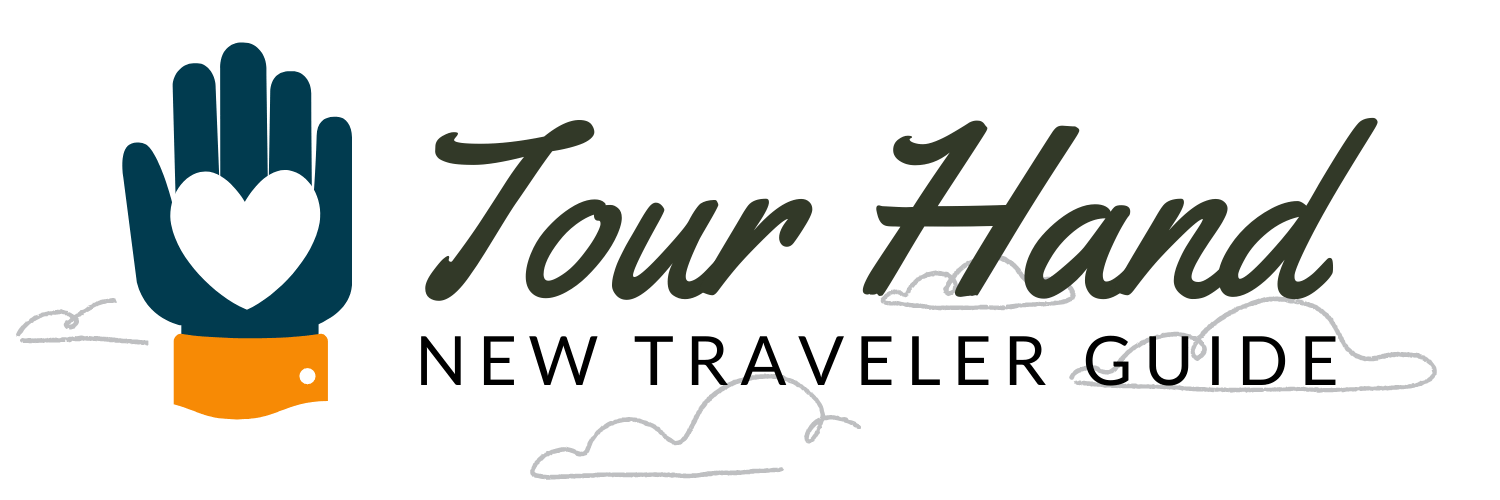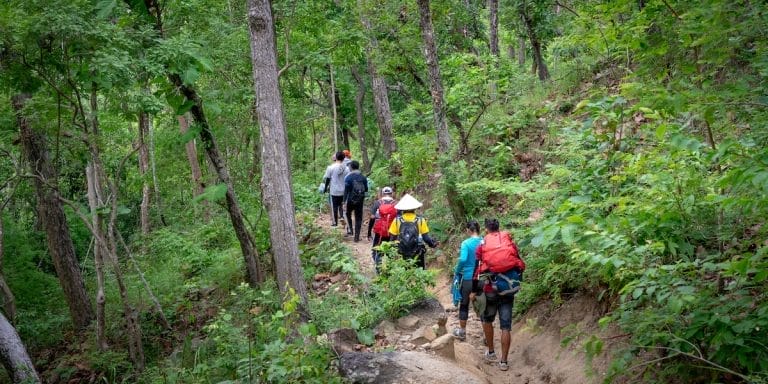Demystifying Visa Requirements for Asia: Your Ultimate Guide
Picture this: you’ve been dreaming about exploring the vibrant streets of Tokyo, indulging in the mouthwatering street food of Bangkok, or immersing yourself in the ancient culture of Beijing. The excitement is palpable, and you can almost taste the adventure that awaits you in Asia. But before you embark on this journey of a lifetime, there’s a crucial aspect that often gets overlooked: visa requirements.
Researching visa requirements may not sound like the most thrilling part of planning your trip, but it holds the key to unlocking the gateway to Asia. Understanding the intricacies of visa regulations can save you from unexpected obstacles, unnecessary stress, and even the heartbreak of being denied entry to your dream destination.
So, let’s embark on a journey of our own – a journey to demystify the world of visa requirements for Asia. Together, we’ll navigate the maze of paperwork, uncover hidden gems of information, and empower you to confidently explore the wonders of this diverse continent.
Are you ready to dive into the world of visa requirements? Let’s begin!
Researching visa requirements is the first step towards your Asian adventure.
Researching visa requirements can be an intricate process, but with the right approach, it can become a manageable and even exciting task. By adopting unique perspectives and innovative methods, you can navigate the complexities of visa regulations in the English language more effectively. Here are some fresh approaches to consider:
1. Utilize Interactive Online Tools:
Instead of relying solely on static government websites, explore interactive online tools that provide personalized visa information. These tools often ask a series of questions and generate tailored results based on your specific circumstances. They can save you time and provide a more user-friendly experience.
2. Seek Advice from Travel Communities:
Engage with travel communities and forums where experienced travelers share their insights and experiences regarding visa requirements. These communities often provide up-to-date information, firsthand accounts, and valuable tips that can help you navigate the visa process more smoothly.
3. Consult with Visa Specialists:
If you find the visa research overwhelming, consider consulting with visa specialists or immigration lawyers who specialize in visa requirements. They possess in-depth knowledge and can guide you through the process, ensuring you meet all necessary criteria and submit accurate documentation.
4. Leverage Social Media Platforms:
Stay informed about visa requirements by following relevant social media accounts, such as embassy or consulate pages. These platforms often share updates, changes in regulations, and important announcements. Additionally, you can join groups or follow influencers who provide valuable visa-related content.
5. Use Language-Specific Resources:
If English is not your first language, consider utilizing language-specific resources that provide visa information in your native tongue. Many countries have dedicated websites or sections within official government websites that offer translations or information in multiple languages.
6. Attend Visa Workshops or Webinars:
Look for workshops or webinars conducted by immigration experts or organizations that focus on visa requirements. These sessions can provide comprehensive guidance, answer specific questions, and offer practical tips to simplify the research process.
By embracing these innovative approaches, researching visa requirements in the English language can become a more accessible and less overwhelming task. Remember to stay organized, double-check information, and start the process well in advance to ensure a smooth visa application experience.

It is crucial to gather all the necessary documents for your visa application. This includes your passport, proof of financial stability, and any supporting documents required by the specific visa category you are applying for. Make sure to carefully review the application form and fill it out accurately. Additionally, it is important to stay organized throughout the process. Keep track of deadlines, make copies of all documents, and create a checklist to ensure you have completed all the required steps. Double-checking all the information you provide is also essential to avoid any mistakes or omissions that could delay the application process. Lastly, starting the visa application well in advance is highly recommended. This allows for any unexpected delays or complications that may arise, giving you enough time to resolve them without rushing. By following these guidelines, you can ensure a smooth and successful visa application experience.

Case Study 1: Researching Visa Requirements for a Business Trip
Alex is a business professional based in Germany who needs to travel to the United States for a conference. He wants to ensure he has all the necessary visa requirements in place before making any travel arrangements. Alex starts by researching the official website of the U.S. Embassy in Germany, where he finds detailed information about the visa application process, required documents, and fees. He also discovers that he needs to schedule an appointment at the U.S. Consulate in Frankfurt to submit his application and attend an interview. Based on the information gathered, Alex prepares all the required documents, including his passport, invitation letter, and proof of financial stability. He successfully completes the visa application process and receives his visa in time for his business trip.
Case Study 2: Researching Visa Requirements for a Student Exchange Program
Emily, a student from Canada, has been accepted into a student exchange program in Australia. Before she can embark on her exciting journey, she needs to research and fulfill the visa requirements. Emily starts by visiting the official website of the Australian Department of Home Affairs, where she finds detailed information about the student visa application process. She learns that she needs to provide proof of enrollment in a registered course, health insurance coverage, and sufficient funds to support herself during her stay. Emily carefully gathers all the required documents, submits her visa application online, and pays the necessary fees. After a thorough review, her visa is approved, allowing her to pursue her academic goals in Australia.
Case Study 3: Researching Visa Requirements for a Family Vacation
John and Sarah, a married couple from the United Kingdom, are planning a family vacation to Thailand with their two children. Before booking their flights and accommodations, they need to research and understand the visa requirements for their trip. They visit the official website of the Royal Thai Embassy in London, where they find comprehensive information about tourist visa applications. They learn that as UK citizens, they can enter Thailand for up to 30 days without a visa if arriving by air, or up to 15 days if arriving by land. However, since they plan to stay for more than 30 days, they need to apply for a tourist visa in advance. John and Sarah gather the necessary documents, including their passports, flight itineraries, and proof of accommodation, and submit their visa applications at the Thai Embassy. Their visas are approved, allowing them to enjoy a memorable family vacation in Thailand.
These case studies demonstrate the importance of thoroughly researching visa requirements in the English language to ensure a smooth and successful visa application process.
With the increasing globalization and ease of travel, researching visa requirements in the English language is expected to undergo significant changes and improvements in the future. Here are some unique insights and predictions:
1. Enhanced Online Platforms: Online platforms providing visa information will become more user-friendly and comprehensive. Governments and travel agencies will invest in creating intuitive websites and mobile applications that offer detailed visa requirements and guidelines in multiple languages, including English.
2. Artificial Intelligence (AI) Assistance: AI-powered virtual assistants will play a crucial role in assisting travelers with visa research. These intelligent chatbots will be capable of understanding and answering complex visa-related queries, providing accurate information in real-time.
3. Personalized Recommendations: Advanced algorithms will analyze travelers’ profiles and preferences to offer personalized visa recommendations. Based on factors like nationality, purpose of travel, and previous visa history, these systems will suggest the most suitable visa options and requirements.
4. Real-Time Updates: Visa requirements are subject to change frequently. In the future, real-time updates will be readily available through online platforms and mobile applications. Travelers will receive instant notifications about any changes or new visa policies, ensuring they have the most up-to-date information.
5. Collaboration between Governments: Governments worldwide will collaborate to streamline visa processes and create unified platforms for visa research. This cooperation will aim to provide consistent and easily accessible visa information across different countries, making it simpler for travelers to understand and fulfill the requirements.
6. Integration of Machine Translation: As English is widely spoken and understood, machine translation technologies will be integrated into visa research platforms. This will enable travelers to access visa information in their native language, even if the original content is in English.
7. User-Generated Content: Travelers’ experiences and insights will become valuable resources for visa research. Online platforms will encourage users to share their visa application experiences, providing useful tips, advice, and up-to-date information to fellow travelers.
8. Augmented Reality (AR) Assistance: AR technology will revolutionize visa research by overlaying visa requirements and guidelines onto the physical documents. Travelers will be able to use their smartphones or AR glasses to instantly view and understand the specific requirements for their destination.
9. Simplified Visa Processes: Governments will continue to simplify visa processes, aiming to attract more tourists and business travelers. This simplification will include clearer guidelines, online application systems, and faster processing times, reducing the overall complexity of researching visa requirements.
10. Integration with Travel Planning: Visa research will be seamlessly integrated with travel planning platforms. Travelers will be able to access visa requirements and apply for visas directly through travel booking websites or apps, simplifying the entire process and ensuring a smooth travel experience.

Researching visa requirements in the English language is expected to undergo significant changes and improvements in the future. Here are some unique insights and predictions:
1. Enhanced Online Platforms: Online platforms providing visa information will become more user-friendly and comprehensive. Governments and travel agencies will invest in creating intuitive websites and mobile applications that offer detailed visa requirements and guidelines in multiple languages, including English.
2. Artificial Intelligence (AI) Assistance: AI-powered virtual assistants will play a crucial role in assisting travelers with visa research. These intelligent chatbots will be capable of understanding and answering complex visa-related queries, providing accurate information in real-time.
3. Personalized Recommendations: Advanced algorithms will analyze travelers’ profiles and preferences to offer personalized visa recommendations. Based on factors like nationality, purpose of travel, and previous visa history, these systems will suggest the most suitable visa options and requirements.
4. Real-Time Updates: Visa requirements are subject to change frequently. In the future, real-time updates will be readily available through online platforms and mobile applications. Travelers will receive instant notifications about any changes or new visa policies, ensuring they have the most up-to-date information.
5. Collaboration between Governments: Governments worldwide will collaborate to streamline visa processes and create unified platforms for visa research. This cooperation will aim to provide consistent and easily accessible visa information across different countries, making it simpler for travelers to understand and fulfill the requirements.
6. Integration of Machine Translation: Machine translation technologies will be integrated into visa research platforms. This will enable travelers to access visa information in their native language, even if the original content is in English.
7. User-Generated Content: Travelers’ experiences and insights will become valuable resources for visa research. Online platforms will encourage users to share their visa application experiences, providing useful tips, advice, and up-to-date information to fellow travelers.
8. Augmented Reality (AR) Assistance: AR technology will revolutionize visa research by overlaying visa requirements and guidelines onto the physical documents. Travelers will be able to use their smartphones or AR glasses to instantly view and understand the specific requirements for their destination.
9. Simplified Visa Processes: Governments will continue to simplify visa processes, aiming to attract more tourists and business travelers. This simplification will include clearer guidelines, online application systems, and faster processing times, reducing the overall complexity of researching visa requirements.
10. Integration with Travel Planning: Visa research will be seamlessly integrated with travel planning platforms. Travelers will be able to access visa requirements and apply for visas directly through travel booking websites or apps, simplifying the entire process and ensuring a smooth travel experience.








